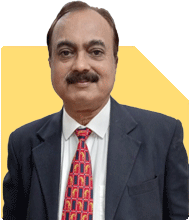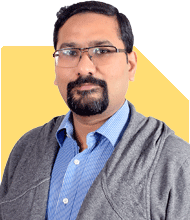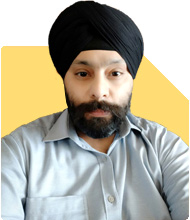34-Year-Old with 12 Years of Experience Seeking Career Change: What Are My Options?
Pradeep Pramanik | Answer |Ask -Follow
Career And Placement Consultant - Answered on Sep 10, 2024
Pradeep, who hails from Bhagalpur in Bihar, has worked in the pharmaceutical industry for 15 years in sales, marketing, training and product management roles in companies like Lupin Pharmaceuticals, Elder Pharmaceuticals and Ranbaxy Laboratories.
During his tenure in the pharma industry, he has worked in different states including Bihar, Jharkhand, Andhra Pradesh, Telangana, Karnataka, Maharashtra, Tamil Nadu and West Bengal.
In 1998, he launched Fast Track Career Consultants with the aim of helping youngsters find jobs through the right career counselling, training and placement services.
They also offer HR analysis and appraisal services.
Over the years, he has been invited by management and engineering institutions to discuss education and employment policies, entrepreneurship, soft skills and emerging careers in India.
He has published four books on career counselling and contributed articles to print publications.... more

I am 34 years having 10 years experience in PSU banking and previously 2 years experience in IT. I feel I have wasted my 10 whole years in PSU banking and I have npt learned much. Now I want to move to a good career. What can I do?
Sorry to note that You are repenting having worked for PSU Bank for around 10 yrs then for an IT company for 2 yrs. And now want to restart a good Career .. Pl. note no experience is small or useless provided you could use it . Now when you want to start a fresh , every where you have to say what you had been doing in those years . Pl. note there is nothing called Good Career whereas there is nothing called bad one . It all depends how you are going to take advantage and move ahead .
You may like to see similar questions and answers below
Krishna Kumar | Answer |Ask -Follow
Workplace Expert - Answered on May 07, 2024
Aashish Sood |127 Answers |Ask -Follow
CAT, Management Expert - Answered on May 30, 2024
Inderpaul Singh | Answer |Ask -Follow
Leadership Coach - Answered on Mar 03, 2025
Patrick Dsouza |1428 Answers |Ask -Follow
CAT, XAT, CMAT, CET Expert - Answered on Apr 25, 2025
Dr Dipankar Dutta |1836 Answers |Ask -Follow
Tech Careers and Skill Development Expert - Answered on Dec 05, 2025
Ulhas Joshi |280 Answers |Ask -Follow
Mutual Fund Expert - Answered on Dec 05, 2025
Dr Dipankar Dutta |1836 Answers |Ask -Follow
Tech Careers and Skill Development Expert - Answered on Dec 04, 2025
Ravi Mittal |676 Answers |Ask -Follow
Dating, Relationships Expert - Answered on Dec 04, 2025
Anu Krishna |1745 Answers |Ask -Follow
Relationships Expert, Mind Coach - Answered on Dec 04, 2025
Anu Krishna |1745 Answers |Ask -Follow
Relationships Expert, Mind Coach - Answered on Dec 04, 2025
Mayank Chandel |2562 Answers |Ask -Follow
IIT-JEE, NEET-UG, SAT, CLAT, CA, CS Exam Expert - Answered on Dec 04, 2025
Mayank Chandel |2562 Answers |Ask -Follow
IIT-JEE, NEET-UG, SAT, CLAT, CA, CS Exam Expert - Answered on Dec 04, 2025
Mayank Chandel |2562 Answers |Ask -Follow
IIT-JEE, NEET-UG, SAT, CLAT, CA, CS Exam Expert - Answered on Dec 04, 2025
Mayank Chandel |2562 Answers |Ask -Follow
IIT-JEE, NEET-UG, SAT, CLAT, CA, CS Exam Expert - Answered on Dec 04, 2025



























